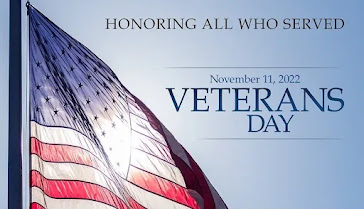So I'm back to posting here more often with my thoughts on writing and on WWII history.
People
with good intentions, even authors, can be heard here and there telling
aspiring writers: “Be sure to write what you know.” Writing
about what I know would be horribly boring: trust me, I worked in IT. What else
do I “know?” Well, let's see, I know baseball, chess, and few other odds and
ends. Maybe I even know a lot about things. The problem is, I don't want to
write about those. I want to write about World War II.
“Ah
ha,” say the write-what-you-know people. “That's what you know!”
Yeah,
okay, you got me . . . not really. I love World War II history. I have a
passion for knowledge on that era of human history and am constantly learning
about it (see Passion below).
“You
should still write what you know!”
Uh .
. . really? No. How about “learn what you write?”
Here’s
why I think "write what you know" is the worst advice.
1 -
Imagination
Dreaming
stuff up is what writers do. You know how you role play, maybe when you're
taking something back to the store for a return and you play this little movie
in your head about how it will go? I say this then they say that, etc.? Welcome
to my world. That's how I write. I spin up a little movie and I watch it and
write what I see. I'll grant you it's more complicated than that, but that's
the basis for my work. Sometimes when I'm writing a scene, I don't quite know
exactly what will happen, so I rely on that movie. I'm often the first reader
to be surprised by an event in my own books.
If it
weren't for writers' imaginations we wouldn't have stories that take place in
space, or the future, or in a country different from our own. Let’s
use an example: the late Tom Clancy. He single-handedly created the
techno-thriller, although I’m pretty sure he wasn’t calling it that when he was
writing it, he was just telling a story he’d like to read. By the way, when he
sold The Hunt for Red October, he was still working as an insurance
agent. So how did he “know” all that technical stuff? See Research below.
2 -
Passion
As I
said above, I have that exact thing for WWII history. Other people like aliens,
vampires, spies, or maybe a vampire spy (hmm . . .) , the list goes on.
Write what you're passionate about. If you love it, it will come across in your
writing and your readers will pick up on it.
3 -
Research
Some
authors, very successful ones I might add, talk about going to the place they
are using as a setting to get a feel for the people and the
locale. Paris does not feel like New
York or London or well, anywhere. This is a great idea if you've
got several thousand bucks available to make the trip. Oh wait, you don't
either? Okay, then how about oh, I don't know, the internet? For all of my
published books and the one I'm writing today, I use Google Earth to “find”
locales. I know exactly where certain events take place on a map and have in
many cases used the street view (Google maps) to see what it's like to stand
right there looking around in all directions. I can describe a place as if I've
actually been there because, in a technological way, I have.
Need
to know how many rounds per minute a Thompson .45 caliber submachine gun fires.
I did. Google. Answer: around 700 / minute, depending on the version of the
weapon. By the way, I also learned that the 30-round box magazine could
sometimes fall out! So everyone preferred the 20-round mag instead. What's the
service ceiling for a P-51 Mustang fighter? Answer: 41,900 feet. Time to
find out these answers? 10 seconds for each question. In the olden days, I'd
have needed to go to the library and dig into a book. Time: hours?
Although, going back to Tom Clancy, I can imagine him back then sitting at the
library, happy and contented as he digs through books and magazines about
submarines, helicopters, and sonar.
Yes,
in a way I write what I know because I looked it up, have seen a documentary,
or I've read a book on it. I read at least one book a month on WWII
(non-fiction), sometimes four. I watch WWII documentaries all
the time. So to be truthful, I'm really learning what I write
(about) instead of the other way around.
So
there. My take on that advice.
One
last thing. it's nice to find out I’m not alone in my thinking. And yes, I used
Google. Google R my friend.
“My
wife will tell you I'm practically addicted to the History Channel . . . and I
read a lot of history.” ~ Tom Clancy, CNN interview on 22 August 2000



















